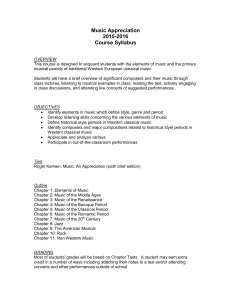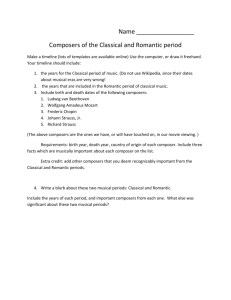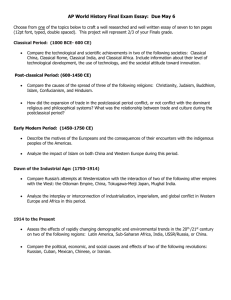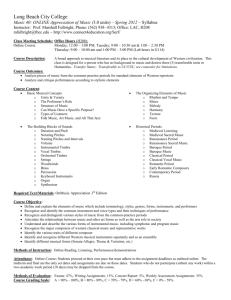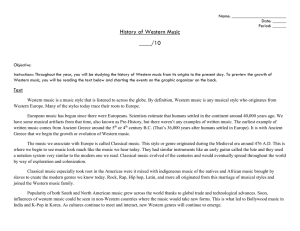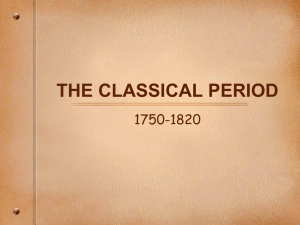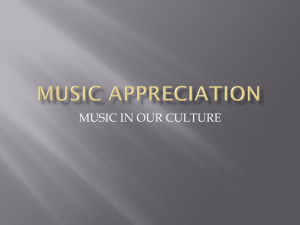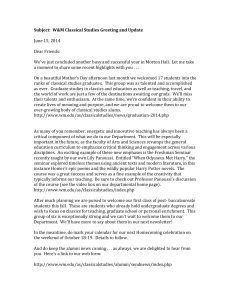MUS 1210 History
advertisement
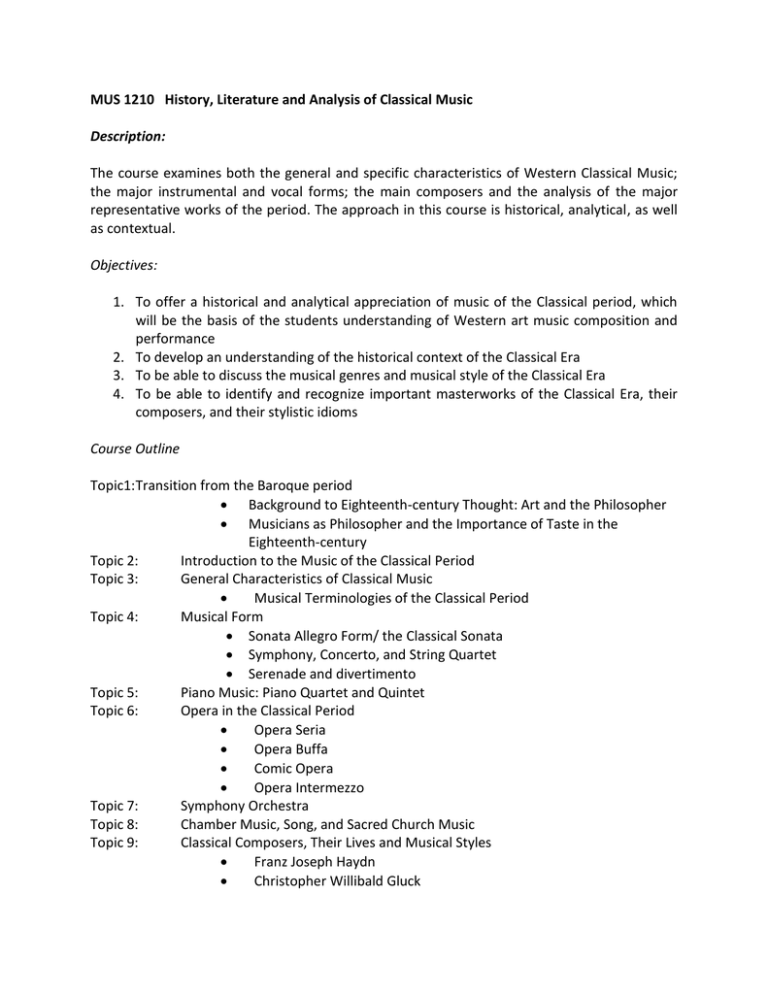
MUS 1210 History, Literature and Analysis of Classical Music Description: The course examines both the general and specific characteristics of Western Classical Music; the major instrumental and vocal forms; the main composers and the analysis of the major representative works of the period. The approach in this course is historical, analytical, as well as contextual. Objectives: 1. To offer a historical and analytical appreciation of music of the Classical period, which will be the basis of the students understanding of Western art music composition and performance 2. To develop an understanding of the historical context of the Classical Era 3. To be able to discuss the musical genres and musical style of the Classical Era 4. To be able to identify and recognize important masterworks of the Classical Era, their composers, and their stylistic idioms Course Outline Topic1:Transition from the Baroque period Background to Eighteenth-century Thought: Art and the Philosopher Musicians as Philosopher and the Importance of Taste in the Eighteenth-century Topic 2: Introduction to the Music of the Classical Period Topic 3: General Characteristics of Classical Music Musical Terminologies of the Classical Period Topic 4: Musical Form Sonata Allegro Form/ the Classical Sonata Symphony, Concerto, and String Quartet Serenade and divertimento Topic 5: Piano Music: Piano Quartet and Quintet Topic 6: Opera in the Classical Period Opera Seria Opera Buffa Comic Opera Opera Intermezzo Topic 7: Symphony Orchestra Topic 8: Chamber Music, Song, and Sacred Church Music Topic 9: Classical Composers, Their Lives and Musical Styles Franz Joseph Haydn Christopher Willibald Gluck Topic 10: Topic 11: Wolfgang Amadeus Mozart Ludwig van Beethoven Classical Period at Its Climax: Years of Revolution and Change Status of the Classical Musician Concert Societies, Music Publishing and the Musician as the Author Post-Revolutionary Changes in Society and the Arts in the Early Nineteenth-century Writing Skills Learning Outcomes 1. Developed comparative understanding of the styles, trends, and achievements of the Classical Period. 2. Ability to identify the most important composers of the Classical Period and explain their contributions and analyze their music 3. Analytical appreciation of music of the Classical period, which will be the basis for understanding Western art music composition and performance of the seventeenth century Methods of Teaching/Delivery Lectures, class discussions, assigned readings, and written assignments Modes of Assessment Course Work Attendance and participation in class discussions: 5% Assigned Readings and Presentations: 5% Written assignment: 10% Mid-semester test: 10% Final Examination Written: 70% Selected Readings Burkholder, J. Peter and Claude V. Paliscah. 2005. Norton Anthology of Western Music: Volume 2: Classic to Twentieth Century. New York and London: W.W. Norton and Company. Plantinga, Leon. 1985. Anthology of Romantic Music (The Norton Introduction to Music Hisstory). New York and London: W. W. Norton & Company. Kopp, David. 2002. Chromatic Transformations in Nineteenth-Century Music (Cambridge Studies in Music Theory and Analysis). Cambridge and New York: CambridgeUniversity Press. Lobanova, Mairna. 2000. Musical Style and Genre: History and Modernity (Contemporary Music Studies Series).Amsterdam: Overseas Publisher Association.
